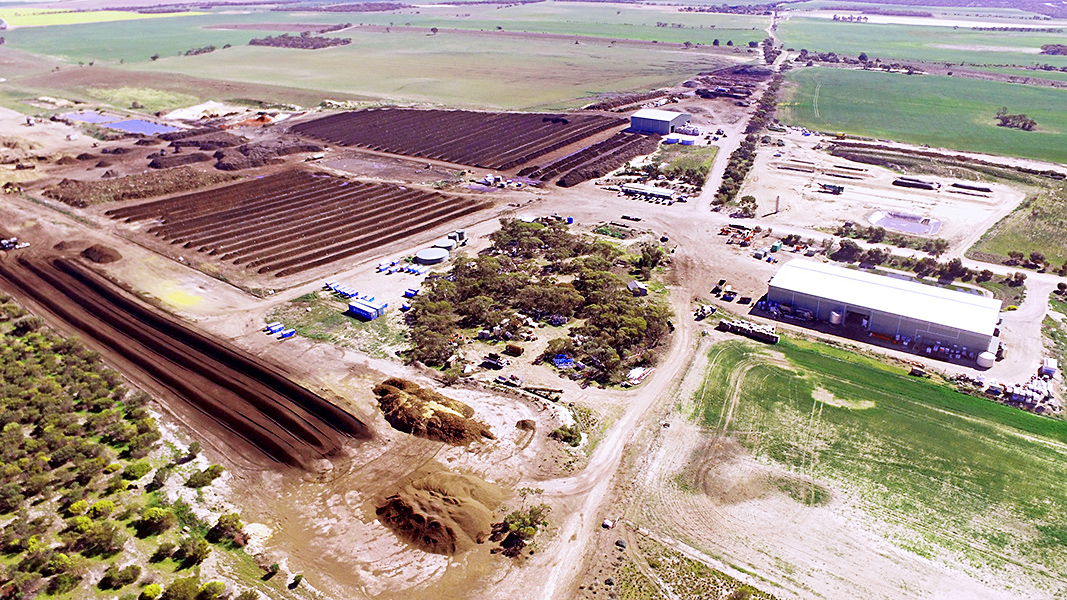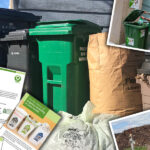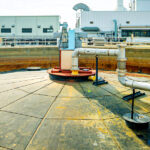Top: Peats Soil & Garden Supplies’ composting site in Australia. Photo courtesy of Peats Soils
The Australian Organics Recycling Association (AORA) and the Italian Composting and Biogas Association (CIC) were among several countries providing updates during the Opening Plenary of the US Composting Council’s virtual annual conference in January. Peter Olah of AORA presented preliminary findings of the Association’s Organic Recycling Capability Survey 2020, which it commissioned to “ascertain the organic recycling industry’s existing and potential capacity,” notes AORA. “This survey will help establish the industry’s ability to step up as an economic, employment and environmental provider of benefit.” The survey complements a report that AORA released in March 2020, The Economic Contribution of the Australian Organics Recycling Industry, which identified 305 businesses operating in the sector that recycled and processed 7.5 million metric tons of organic material in 2018-19 with collective industry turnover of more than $2 billion (includes revenue, investment, and expenditures). These enterprises created 4,845 jobs, paying over $366 million in wages and salaries.
The Capability Survey collected data on industry satisfaction, obstacles to growth, industry maturity and industry capacity. Among the preliminary findings:
- Mostly or very satisfied with productivity and not satisfied with profitability rates.
- The two most significant obstacles to growth are contamination of input materials and regulatory policy uncertainty. Short council (municipal) contracts also were cited as an obstacle.
- In terms of capacity, businesses in the Australian organics recycling industry occupy 49.2% of their operating sites, on average. If they were not constrained by obstacles, they would occupy 73.6% of their operating sites, the survey found.
In Italy, CIC’s Marco Ricci Jürgensen reported that almost 50 million people are serviced by food waste collection schemes in the country. In terms of biowaste treatment and compost production in Italy in 2019, CIC reports 3.9 million metric tons were diverted to composting, and 4.0 million tons were sent to integrated anaerobic digestion (AD) and composting facilities — yielding 2.1 million tons of compost. The CIC certifies compostable products and most recently, it developed and is now implementing a biomethane label (“Biometano Fertile”) to assess the quality of biomethane produced in composting and AD plants.










